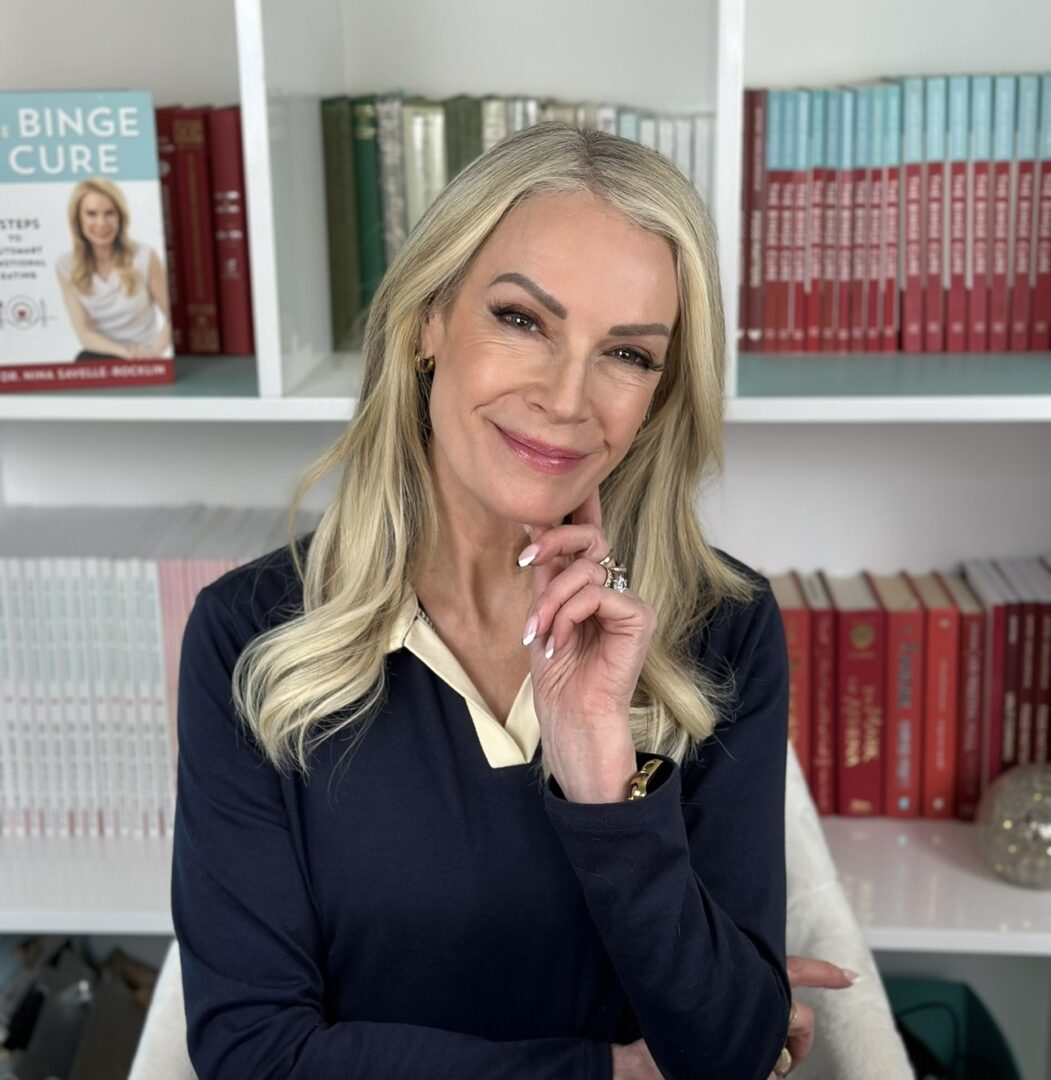We recently had the chance to connect with Dr. Nina Savelle Rocklin and have shared our conversation below.
Hi Dr. Nina, thank you so much for joining us today. We’re thrilled to learn more about your journey, values and what you are currently working on. Let’s start with an ice breaker: When was the last time you felt true joy?
I feel joy every day. I’m a two-time cancer survivor (luckily, these were two of the “better” cancers, early stage breast cancer and papillary thyroid cancer) and I’m also in remission from a serious autoimmune disease. As a result of these health challenges I learned that the little things truly are the big things. I’m delighted that I get to spend time with my husband every day, talk with my daughters, hug my Great Dane, be outside, hug a tree, which is strangely calming, and just be alive. And I also love my work a psychoanalyst helping people outsmart emotional eating and feel good about themselves. So every day I am grateful and feel joy at just being here, enjoying my family, and doing work that is meaningful and purposeful
Can you briefly introduce yourself and share what makes you or your brand unique?
I’m a psychoanalyst, author, podcast host and internationally recognized expert on emotional eating. As creator of The Binge Cure Method, I help people worldwide heal their relationship with food by focusing on WHY-power, not willpower. Identifying and processing the reasons behind bingeing and emotional eating are the key to lasting change. I’m the author of The Binge Cure: 7 Steps to Outsmart Emotional Eating, Beyond Binge Eating, Food for Thought: Perspectives on Eating Disorders, and (with Salman Akhtar) Beyond the Primal Addiction, Food Matters, and the upcoming Eyes, Vision & Mind (2026). My podcasts include Mind Matters, The Forking Truth (with co-host Dr. Alisa Karmel), The Binge Cure with Dr. Nina, and The Dr. Nina Show on L.A. Talk Radio. Through my books, podcast, media appearances, and coaching, I empower people to stop obsessing over food and start living their fullest lives. My compassionate, no-diet approach offers hope, healing, and freedom.
Amazing, so let’s take a moment to go back in time. Who taught you the most about work?
I’ve always been extremely driven toward accomplishment and productivity. Even as a little girl I had projects beyond my years. For most of third grade I’d come home after school and work on my novel, a Nancy Drew mystery. I’d discovered that there was no person named Carolyn Keene, the author of the novels, and they were written by a team of writers. So, I reasoned, there was no reason I couldn’t write one, since I was a huge Nancy Drew fan. My goal was to write 100 pages and I did it, but admittedly the margins were wider by the time I reached the last page. So, how did I develop this passion for writing? Probably from my father, a college professor who was constantly writing books. He is not a particularly warm or loving person and was more interested in writing books than relating to his family. I may have modeled my work ethic over his in an attempt to be like him in some way and thus be close to him. Or perhaps I was just a creative kid with big ideas. Maybe both. I’ve always appreciated my father’s dedication to knowledge and his productivity and I’m proud to follow in his writerly footsteps.
When did you stop hiding your pain and start using it as power?
When I was a child we lived in an apartment building where I used to play outside with other kids. Once a stranger appeared and we assumed he was the new landlord (spoiler alert: he was not the landlord). He told us we would play a game of hide and seek, and he’d choose one kid to be with him while the others hid.
He chose me. I felt special, almost elated. From my perspective, the landlord clearly saw something good in me. I followed the “landlord” into the laundry room, where he told me to take off all my clothes because we were going to wash them. I remember that he started taking off his clothes… That’s where my memory stops. The next thing I remember was standing outside the laundry room and feeling frightened.
Later, my parents got angry with me for going with him. “Didn’t we tell you never to talk to strangers?!!” They converted what was presumably concern into anger. I got a spanking instead of a hug. I felt stricken and sad, and terribly lonely. I couldn’t rely on anyone else to take care of me, take my side, or treat me lovingly. Later, this made me want to be as reliable, consistent, and safe as possible for others.
I became a therapist because I wanted to help others relate to themselves in a kind way, to be curious and not critical, and to lift themselves up instead of tearing themselves down. The artist Michelangelo was once asked how he turned huge blocks of stone into statues. His answer still gives me chills. He said he didn’t turn the stone into statues; rather, he freed the statues from the stone. To me, that is the perfect analogy for what I do as a therapist, helping chip away at what keeps people stuck, so they can be their most authentic and true selves.
I’m proud to do this in my clinical private practice and worldwide coaching programs, as an author of several books and a frequent media contributer, and as a Board Member of Rose City Center, a psychotherapy clinic based in Pasadena.
I think our readers would appreciate hearing more about your values and what you think matters in life and career, etc. So our next question is along those lines. Is the public version of you the real you?
In one of my online programs, participants are invited is to do two self-portraits: one the self that they show the world, the other the self that stays hidden. For a long time, my own two portraits would have been diametrically different. For a long time, I pretended to be confident, secure, and at peace with myself when in reality I felt so much shame and insecurity about myself. Public speaking terrified me. Speaking up in class terrified me. Talking with strangers terrified me. I kept my eating disorder history secret and felt so much shame about that.
Back then, I could not have imagined that one day I’d speak about my relationship with food in a very public way, that I’d talk about it on my own podcasts, write about it in my book or in interviews. I spent years in psychoanalysis processing my past, challenging the ideas that created so much shame, and dropping the mask of perfection that seemed so firmly in place. I learned that the authentic, sometimes goofy and sometimes wise (and sometimes wise-ass) me is the lovable and likable me. What a relief to show up in life as my perfectly imperfect self.
Before we go, we’d love to hear your thoughts on some longer-run, legacy type questions. Are you doing what you were born to do—or what you were told to do?
I’m definitely doing what I was born to do. Most of my life I got the message that I was doing things the wrong way or there was something about me that was somehow wrong. I recall visiting my grandmother at the Jewish Home for the Aged and people asked my grandmother if I was adopted because I didn’t look Jewish.
Hello, people. This is what Jewish looks like.
Later, I was told that psychoanalysts should look staid and academic, that I was too blonde, too bold, and revealed too much about myself. According to the traditionalists, I should be a blank slate (as if that’s even possible, today). They also said I didn’t look like a psychoanalyst.
Hello? As we say on my podcast The Forking Truth with co-host Dr. Alisa Karmel, “What the fork?” This is what this psychoanalyst looks like.
All my life people have told me to be quieter, milder, less forthright. They called me too aggressive when I state opinions or go against the grain of some aspects of my profession, like when I maintain that eating disorders are negative coping strategies and are not brain-based diseases.
Given all of that, I’m proud to be open-minded while still trusting myself. As a mom of two wonderful daughters, one of my most proud achievements is modeling for them that it’s important to trust themselves, to be willing to challenge the status quo, and to always, always be true to themselves. To me, that is key to a happy, successful life.
Contact Info:
- Website: https://drninainc.com/
- Instagram: https://www.instagram.com/dr.nina.psychoanalyst/
- Linkedin: https://www.linkedin.com/in/drnina4help/
- Facebook: https://www.facebook.com/DrNina4help
- Yelp: https://www.yelp.com/biz/dr-nina-inc-calabasas-4
- Youtube: https://www.youtube.com/@thebingeatingsolution
- Other: TikTok: https://www.tiktok.com/@the.binge.cure
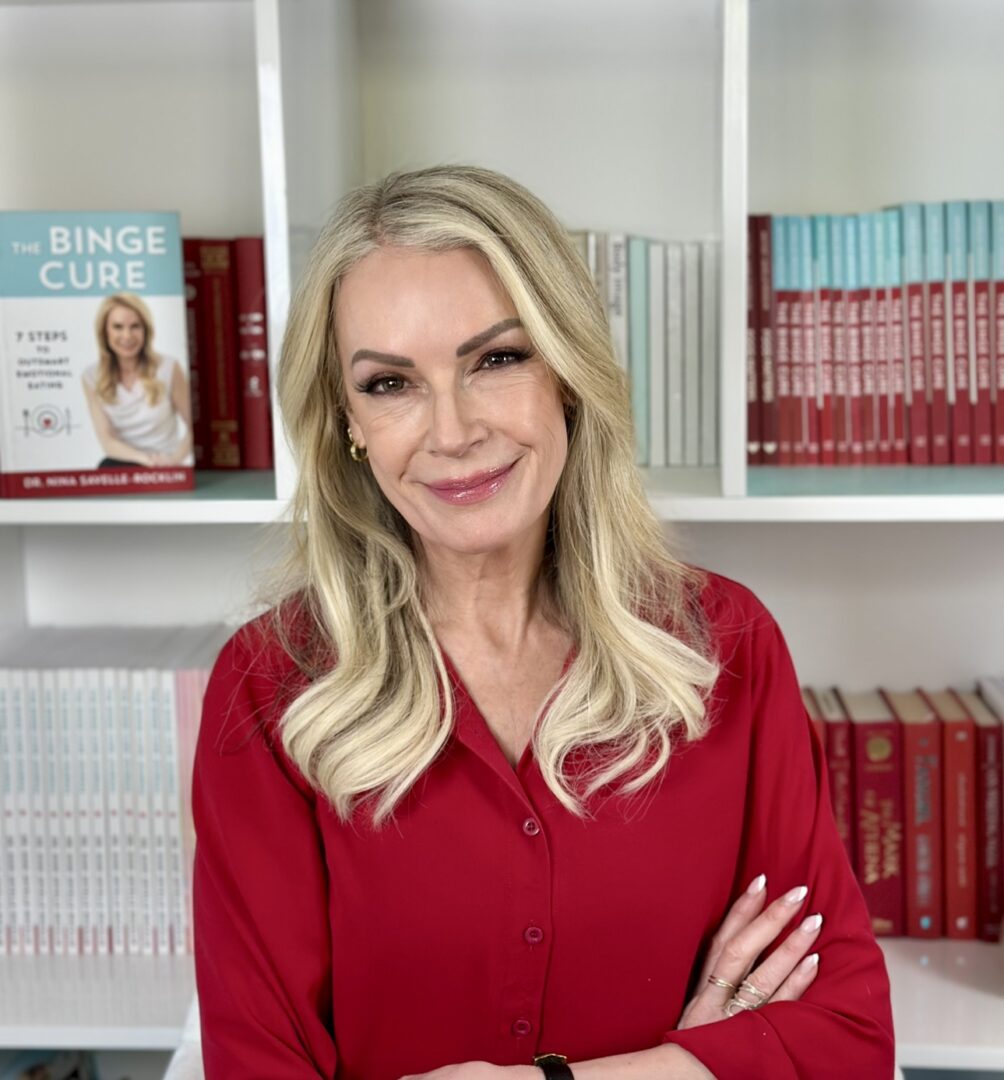
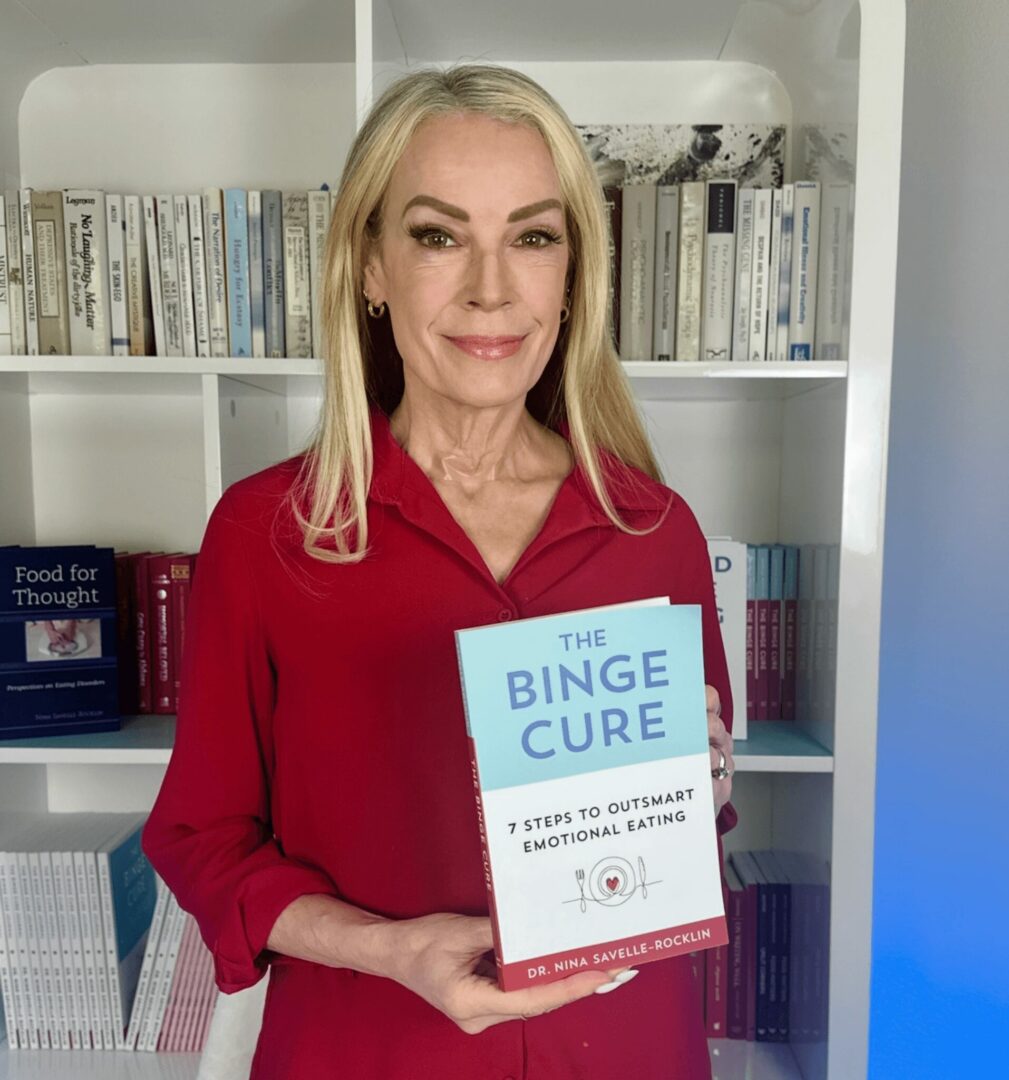
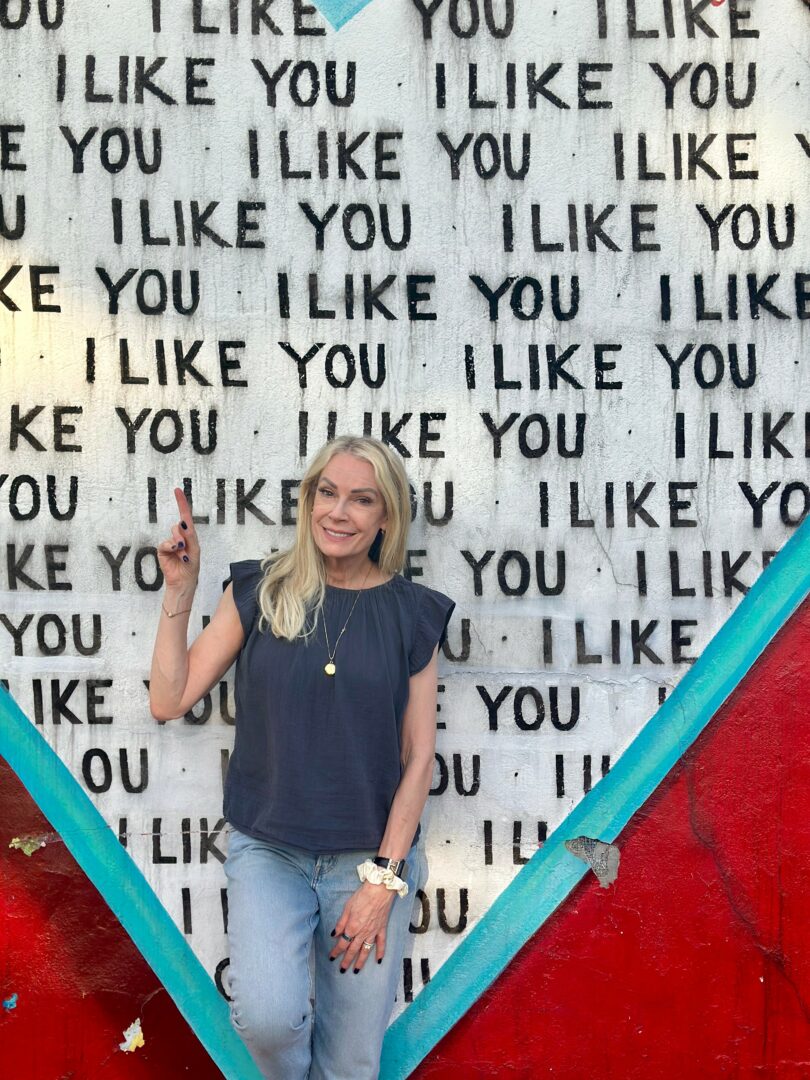
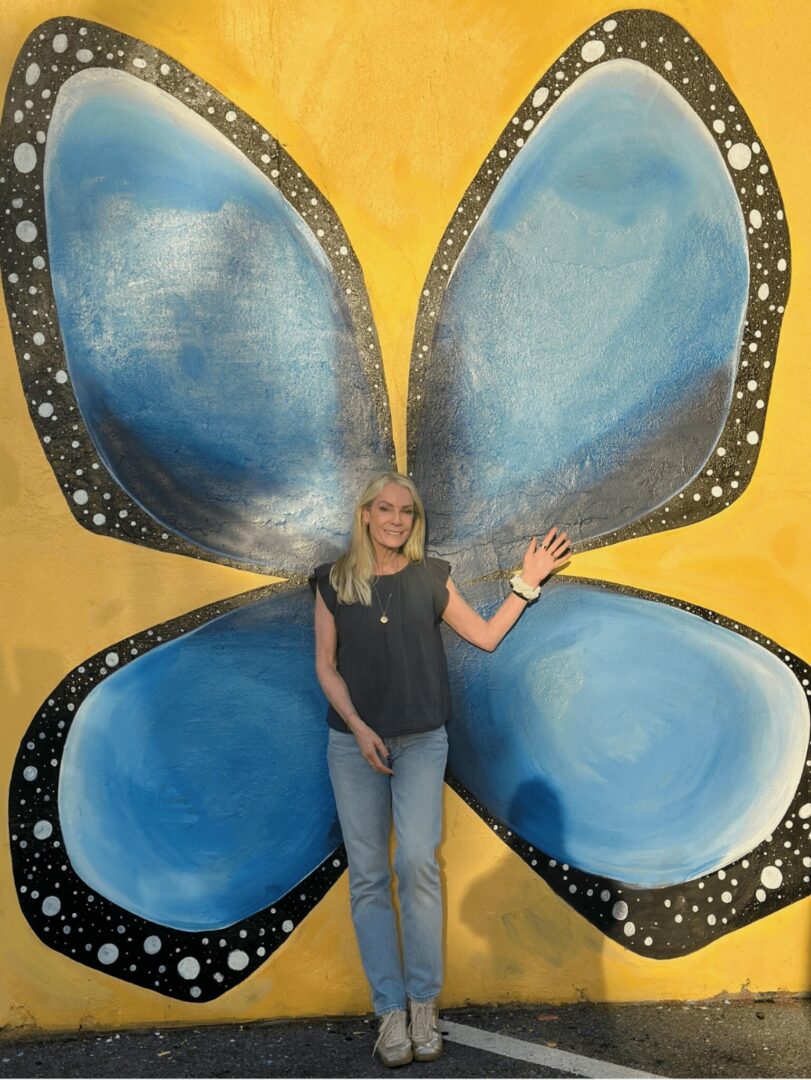
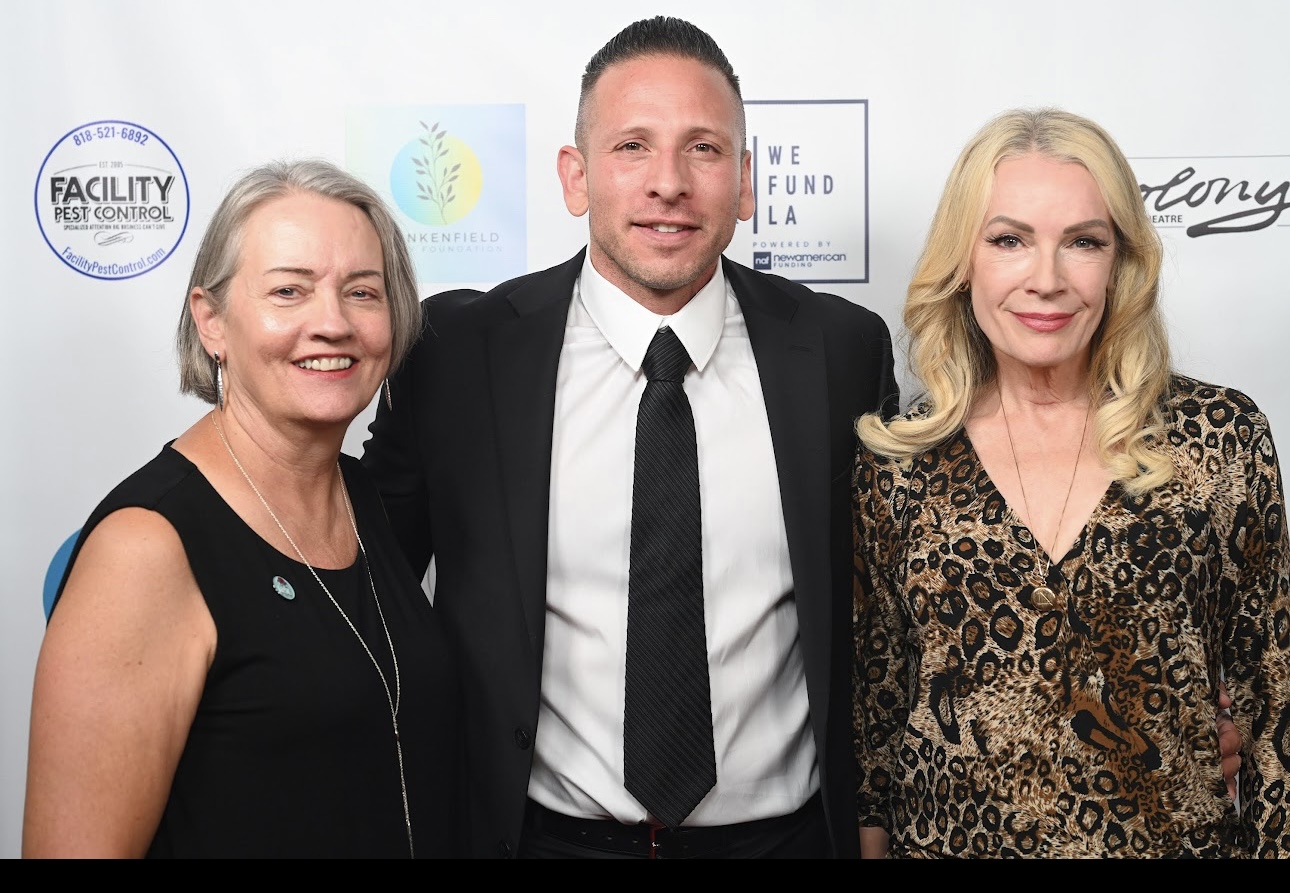
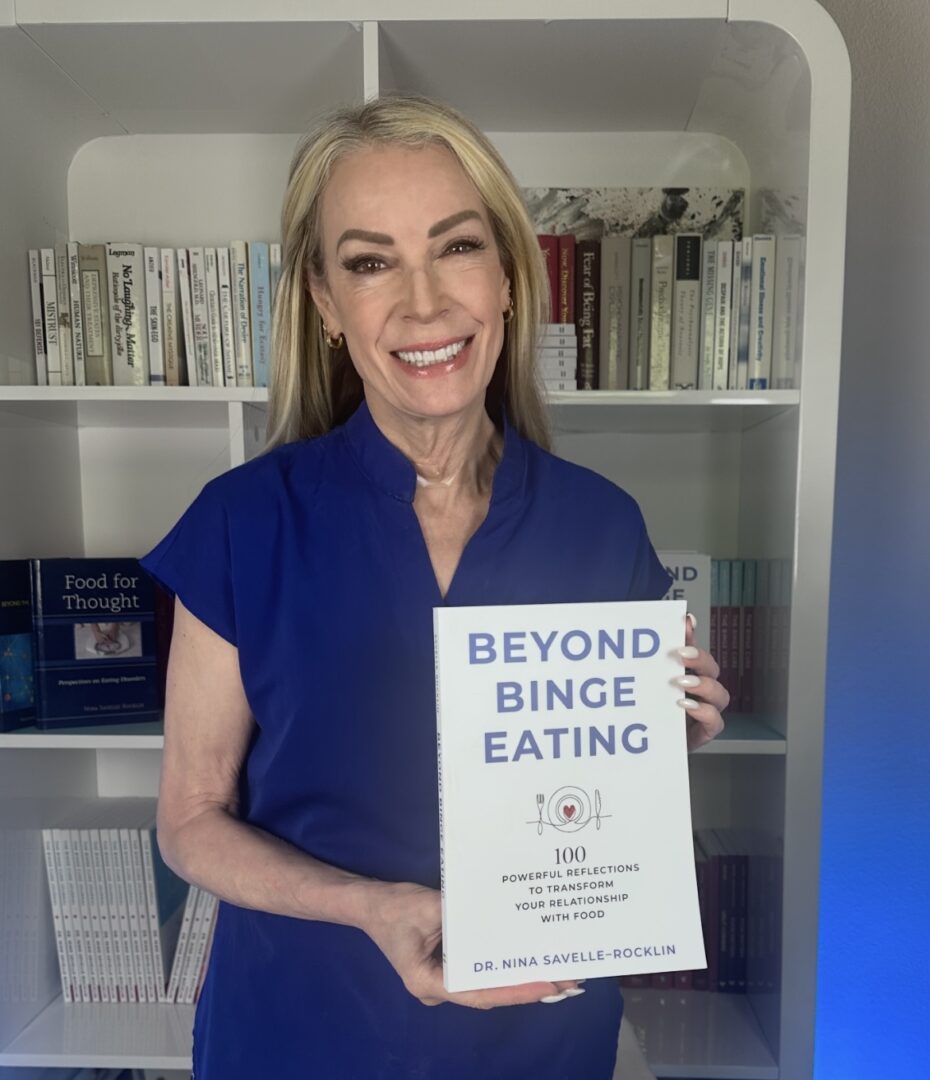
Image Credits
Jenny Karl, photographer
Rose City Center fundraiser (unknown photographer), September 6, 2025
so if you or someone you know deserves recognition please let us know here.

